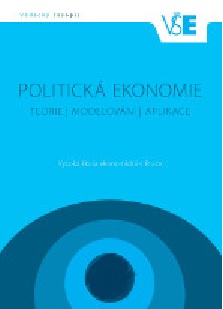Does Political (De)stabilization Drive Clean Energy Transition?
Does Political (De)stabilization Drive Clean Energy Transition?
Author(s): Runguo Xu, Muntasir Murshed, Wenjuan LiSubject(s): Economy, National Economy, Energy and Environmental Studies, Political Sciences, Environmental and Energy policy, Socio-Economic Research
Published by: Vysoká škola ekonomická v Praze
Keywords: Political instability; political economy; clean energy transition; renewable energy
Summary/Abstract: Exploring the political economy of clean energy development, this study appraises how political(de)stabilization influences the clean energy transition process in selected South Asian countries.Using yearly data spanning from 1998 to 2021, the results show that political stabilization facilitatesthe clean energy transition process by raising the share of renewables in the final energyconsumption profiles of the concerned South Asian nations. Contrarily, political destabilization isfound to inhibit the transition process. In addition, political stabilization is witnessed to partiallyoffset the clean energy transition-inhibiting impact of rising carbon dioxide emissions acrossSouth Asia. Furthermore, the results endorse that financial development and receipts of internationalremittance contribute to the clean energy transition process while incoming foreign directinvestments exert no impact in this regard. Accordingly, a couple of policies are recommended forthe concerned South Asian nations.
Journal: Politická ekonomie
- Issue Year: 72/2024
- Issue No: 2
- Page Range: 357-374
- Page Count: 17
- Language: English

